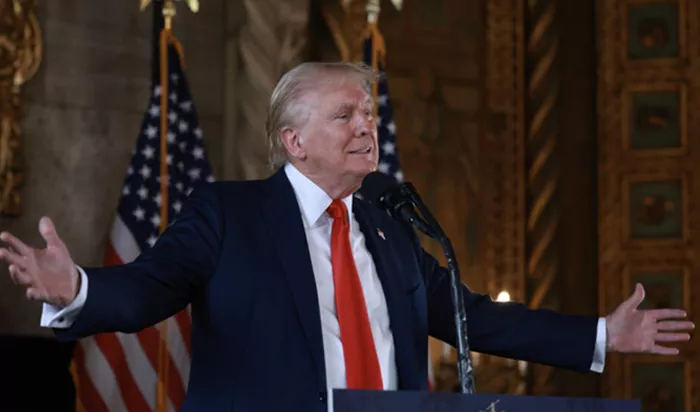In a recent statement, former President Donald Trump has proposed that the sitting President should have a role in determining interest rates. This suggestion represents a significant departure from established economic policy practices, where central banks, such as the Federal Reserve, traditionally set interest rates independently of political pressures. Trump’s proposal has ignited a new debate on the intersection of politics and monetary policy.
Trump’s Proposal: Presidential Role in Interest Rates
Trump’s remarks come amidst ongoing discussions about the best approaches to economic policy and fiscal management. By advocating for presidential involvement in setting interest rates, Trump seeks to integrate monetary policy more directly with the executive branch’s economic strategies. His proposal suggests that the President’s economic priorities could better guide interest rate decisions, potentially leading to more responsive and cohesive economic policies.
Reactions from Policymakers and Economists
The suggestion has elicited diverse responses from policymakers and economists. Critics argue that granting the President a role in determining interest rates could compromise the Federal Reserve’s independence. They warn that such a move might lead to decisions driven by short-term political gains rather than long-term economic stability. On the other hand, supporters of Trump’s proposal believe that increased presidential input could enhance the government’s ability to tackle economic challenges and align monetary policy with broader national objectives.
Historical Context: Central Bank Independence
Historically, central banks like the Federal Reserve have operated independently to ensure that monetary policy decisions are based on economic data and long-term considerations rather than political expediency. This independence is intended to prevent the politicization of economic policy and maintain stability in financial markets. Trump’s proposal challenges this longstanding principle, raising questions about the potential impact on the central bank’s role and its ability to manage the economy effectively.
Potential Implications: Short-Term vs. Long-Term Effects
The potential effects of Trump’s proposal on economic policy could be significant. If implemented, it might alter how interest rates are set and how monetary policy is formulated. The shift could lead to more politically motivated decisions, impacting economic stability and investor confidence. Conversely, proponents argue that a more coordinated approach between the presidency and monetary authorities could enhance the effectiveness of economic measures and address issues more promptly.
Conclusion
As the debate over Trump’s proposal unfolds, the future of economic policy remains uncertain. The suggestion to involve the President in interest rate decisions has sparked a critical discussion about the balance between political influence and central bank autonomy. How this proposal will influence future economic policies and the broader economic landscape is yet to be determined. The ongoing dialogue will likely shape the direction of U.S. economic policy and the role of political leaders in financial decision-making.
Related Topics:

